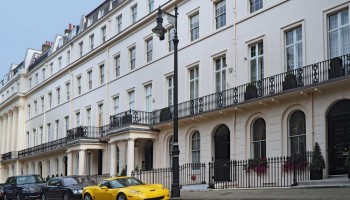In an interview for the TV program "Na Dnevnom Redu", broadcast in Bosnia yesterday, CIN journalist Mirjana Popovic told reporters about the long court procedure they'd gone through to obtain records essential to a story.
On January 17, 2014, CIN make a request to the Secretariat of theBosnian Parliament for access to records on salaries and allowances for 57 lawmakers between November 2010 and January 2014. In February 2014, the Secretariat, however, sent CIN journalists only a list of laws and by-laws that regulate the salaries and allowances, leaving it to the journalists to calculate the earnings.
CIN asked for the data again, saying that the insufficient information Parliament provided could in CIN deceiving the public with false data. The Secretariat replied that they could not be held accountable for unprofessional reporting.
The Secretariat sent CIN a letter, which states that since December 2013, 50 legislators and deputies received monthly attendance fees – 23 collected accommodationallowances, 25 received stipends for living away from home, six received commuting allowances, and 20 got grants for family visits.
Parliamentary officials did not give itemized lists of their individual payments, which it said were made monthly and individually, resulting in there being no monthly or combined breakdown.
In May 2014, the journalists filed a complaint to the Bosnia and Herzegovina Court. More than a year later, in April 2015, the court decided that the Secretariat must review CIN's request and release the records in accordance with the Freedom of Access to Information Act.
The Court ruled that type of information is in public interest, and that access to this information is central to the democratic process.
CIN has been following the trends and reporting on government officials earnings for years, and it is the fourth time they have won a court case against a state institution which refused them access to information. Previously, CIN successfully sued the Bosnia and Herzegovina Civil Service Agency, Ministry of Foreign Affairs and Border Police for the same reasons.
Some stories published using this kind of data in the past have described unfounded government spending. For example, officials are reported to havefalsely received commuting and accommodation allowances by misrepresenting their place of residence. CIN also uncovered a lack of checks and legal loopholes that leave parts of budget spending unaccounted for.
Popovic also gave the example of a piece of research into parliamentary officials' earnings performed by CIN in 2009. She said that in that year alone, salaries and allowances for 60 officials were worth 4.4 million Bosnian marks (about US$ 2.5 million). CIN established that 15 of the legislators active at the time werecashing in on an entire third of that total sum.






